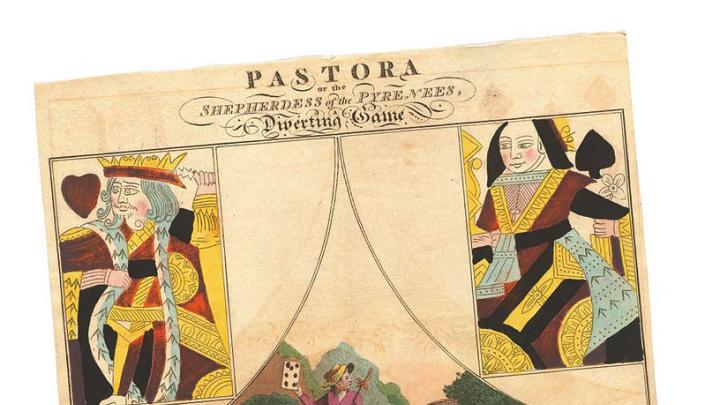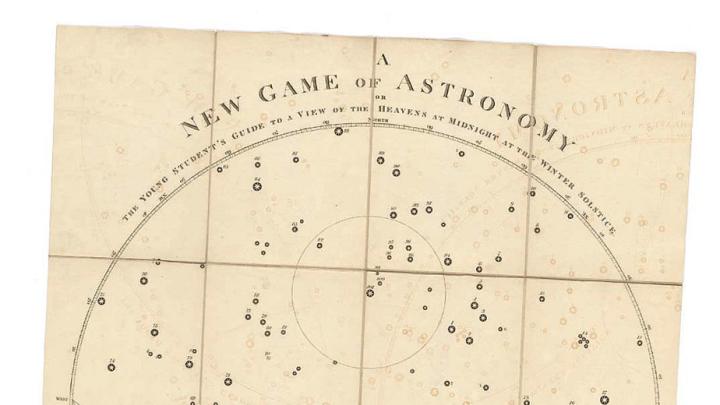How best to spend leisure time during the winter months? The cold, dark days of yesteryear called for story-telling, reading aloud, and board games. In early nineteenth-century England, friends and family members played several such games now shelved in Houghton Library’s narrow, high-ceilinged Z-closet, described by accessioning archivist Melanie Wisner as containing “things that didn’t fit elsewhere, physically and/or intellectually”—from Henry David Thoreau’s pencils to death masks.
An 1814 board game, The Study of the Heavens at midnight during the winter solstice, arranged as a game of astronomy, for the use of young students in that science, was created by Alicia Catherine Mant (1788–1869), a writer of morality tales and children’s stories. The large linen-backed paper board displays a galaxy of stars intended to spur the players to learn about the constellations as they move counters with a spin of the numbered teetotum. The young astronomers’ journey, explains the accompanying booklet, begins with Dubhe, the first star in the Great Bear. After touring the skies, the winner is the first to arrive at Alruccabah, the Pole Star. He then “receives the reward [unspecified] of his perseverance.”
Pastora; or, the Shepherdess of the Pyrenees, a diverting game calculated to kill care, and enliven the dreary hours of winter, published in 1796 and played with counters and a pack of cards, offers an engraved, hand-colored playing-sheet depicting the shepherdess, holding aloft a seven of diamonds. At the corners appear the king of hearts, the knave of clubs, the queen of spades, and the ten of diamonds; on these figures, players use counters to place their bets. The object is to play all one’s cards and collect the most counters.
The shepherdess winks at pastoral art and literature, evoking nature’s idylls and amorous Arcadian pleasures. The rules booklet proffers a different lure. The game “will shew the variety and innocent amusement that may be derived from a pack of cards: were the admirers of them as solicitous to acquire the useful lessons with which they are fraught, as they are to appropriate them to the destruction of each other’s fortunes, they would soon take precedence of every invention for the exercise of the mind.”
Board games and curios found in the Z-closet remind us of how we lived, and raise a looking glass to how we live today. In our era of smartphones and streaming video, perhaps it’s time to roll the die again and buy Park Avenue. Game night, anyone?










